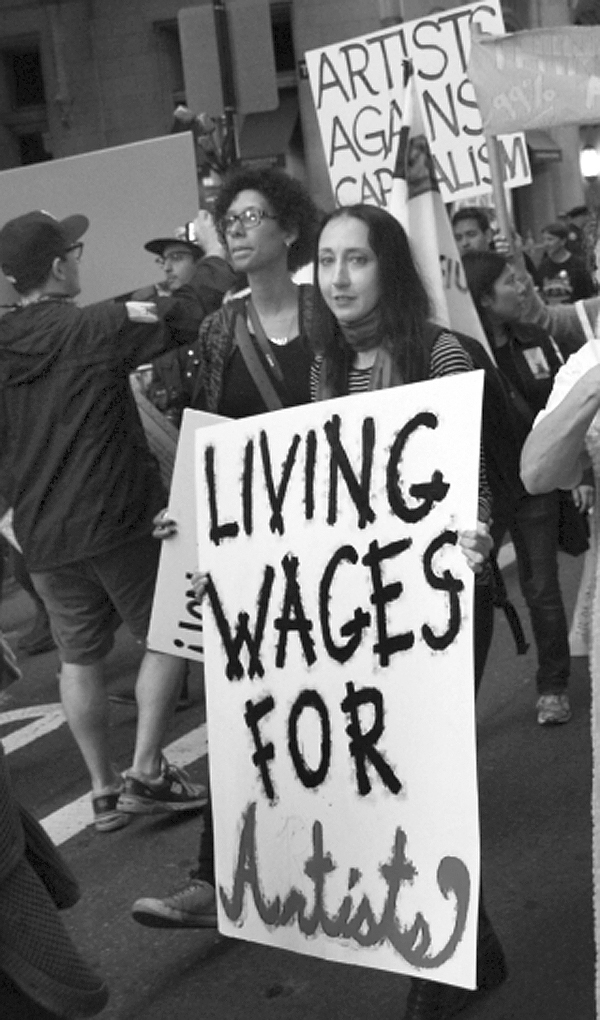
PHOTO/PAULSTEIN
SAN JOSE, CA: “I’ve learned that my people are not the only ones oppressed . . . I have sung my songs all over the world and everywhere found that some common bond makes the people of all lands take to Negro songs as their own.” —Paul Robeson
While it is clear that history teaches us that arts and culture are critical to healthy humanity and potent movement, it is equally clear that there is no solution for the vast majority of “struggling artists” inside of the model of capitalism.
Look around you. How many talented artists do you know? Now look again. How many talented artists do you know that are struggling to make ends meet; trying to figure where their art fits in the structure of paying rent and eating food? It is tough for artists to consider the true potential and value of their work when faced with the reality of the market, which tramples over their humanity and soul daily.
The artist has been struggling to find space outside of commodification and exploitation since the inception of the United States. By contrast, culture played a significant role in slave liberation with Negro spirituals actually used for code as a part of the underground railroad, and Harriet Beecher Stowe’s Uncle Tom’s Cabin was utilized as an important part of the abolitionist strategy.
We can gain instruction on the material consequences for challenging the philosophy of the market from the example of Paul Robeson in the 1950’s. Robeson was part of an era in which culture was clearly targeted for “purification.” Artists that were considered “communist” were blacklisted and many of the cultural institutions who were responsible for this blacklisting continue to grow and expand their control and consolidation over media today. This had nothing to do with the demand for their art. At the time, Robeson was a successful and highly booked performer. His blacklisting resulted in his having to move through the ‘chitlin circuit,’ or as we would say in Hip Hop today, go underground.
Today, six media companies, and a couple of technology companies, generally have control over what and how we produce, distribute and consume art. Technology continues to automate even the arts, as things like the mp3, bits trip and youtube, while adding more “freedom” to the artist, also undermine the basis for paying the artist a living wage. Further, in this environment, tools like You Tube, iTunes, and mobile studios, allow for big entertainment corporations to only scoop the material they specifically want, and discard the increasing socially and politically conscious content and high quality of independent, regional and local art.
Artists continue to seek distribution deals, or see alternative business models to supplement their art, but for the hundreds of thousands, if not millions of artists and musicians of the United States, the contradictions between the truth of art, and the truth of the market can no longer be reconciled.
In this case, the question becomes, is there a right to culture, and not simply to culture but to healthy culture? Who determines that, and on what basis. What else is possible?

Culture or popular culture is now used as a political vehicle to shape and direct a mass audience hooked on ‘it’.